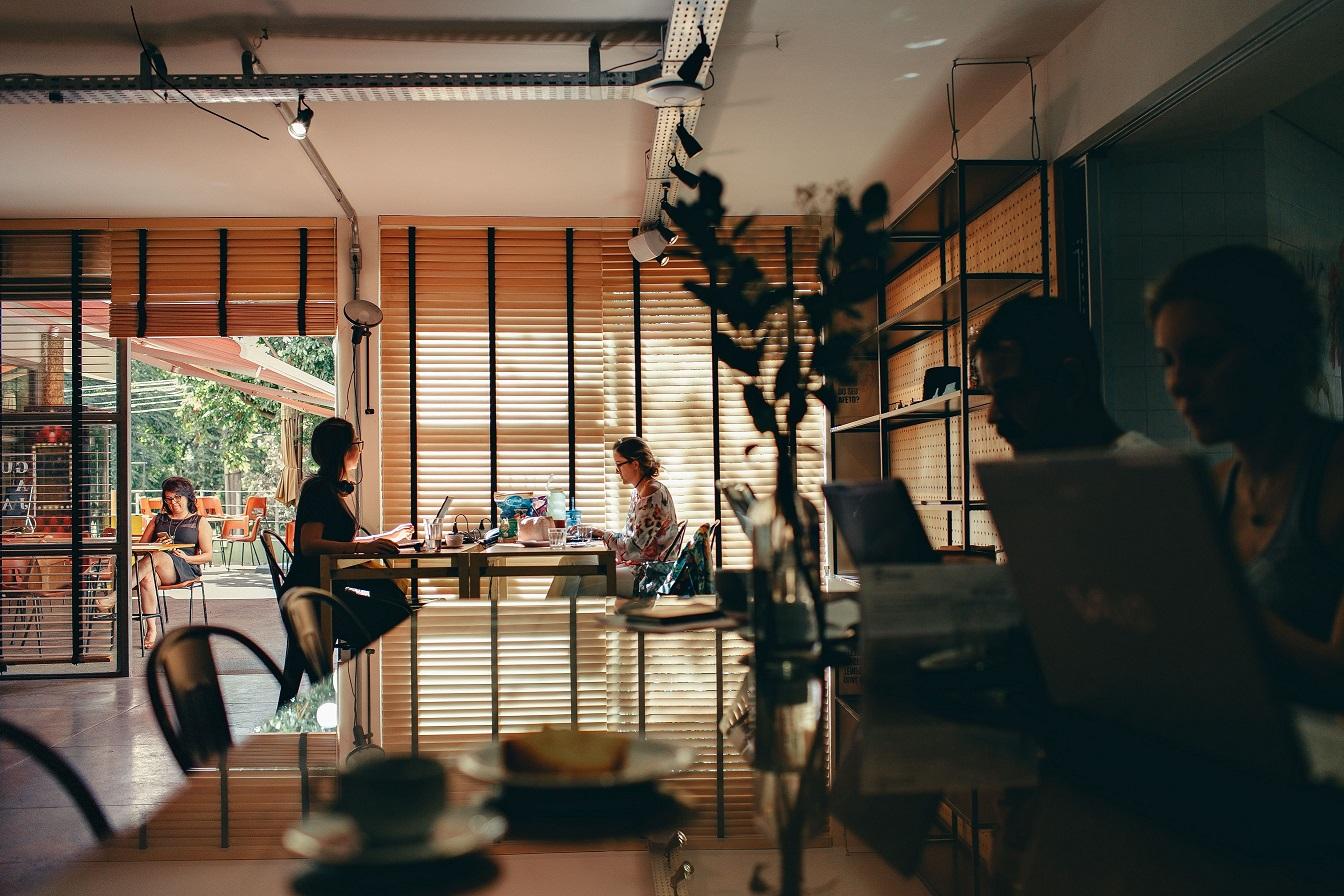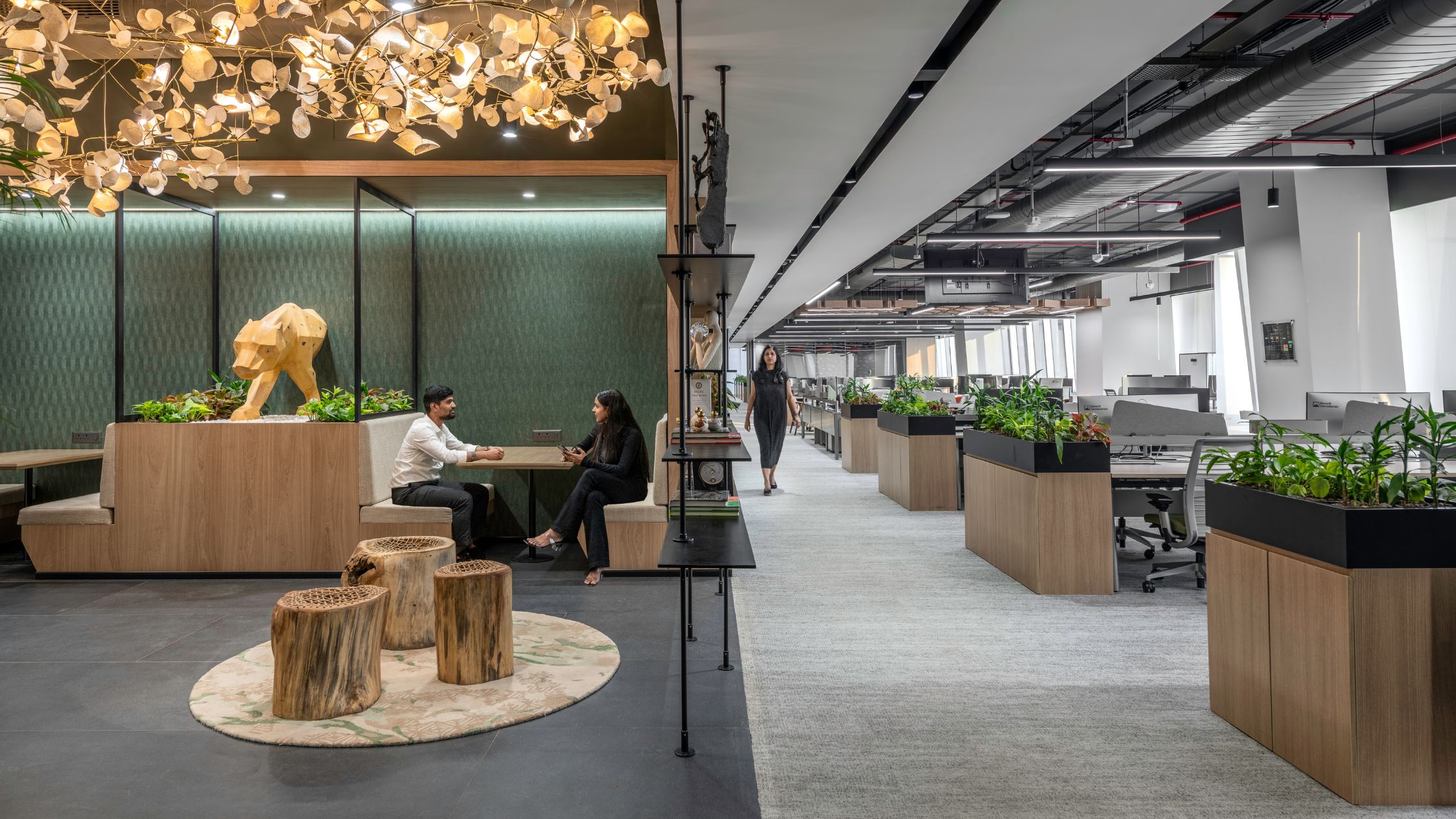The rise of the digital nomad: How remote work is changing office design
For most of us, a big day at the office typically means emails, planning and working on deliverables for that big project, and calls with the client. But for some of us, it may also mean lunch break at a food market in Lisbon, cage diving with sharks off the coast of South Africa after work, or taking the route from work to your home that lets you soak up the street art at the Venice Biennale — just a regular day in the life of a new-age nomadic worker.
Being able to travel frequently and extensively is one of the greatest dreams of millennial and Gen-Z professionals. Digital nomad retreats like Hacker Paradise and Be-Remote are making it possible for them to travel, network and grow, while still checking off places from their travel bucket list. Studies have shown that remote workers consider freedom and flexibility to be the biggest perks of their job — and being able to work from anywhere boosts their morale.1
Why should companies leverage this trend?
Remote work is not simply a new-age trend. It has major advantages for the employer — a fact that many companies still overlook. Employees who are happy with their physical workspace are reported to be 16% more productive, and 30% more likely to choose the company over its competitors.2 While some firms attract talent with jaw-dropping office design concepts, others present employees with the freedom to choose where they work from.
A Gartner report shows that by 2021, companies that offer remote working options will be able to accommodate 40% more employees without increasing their office space.3 Indeed, a useful advantage to have at a time when real estate prices are on the rise. Allowing remote work would also mean that companies need not miss out on potential talent, and HR departments and hiring managers would be able to choose candidates from anywhere in the world, without worrying about logistical snags or hefty relocation allowances.
How can organisations leverage this trend?
1. Design
Companies that still follow prescribed 9-5 workdays, have assigned seating for employees, and monitor productivity based on entry and exit times may find remote working too big a leap.
Other firms, however, have already moved to an agile work culture through the very way their workspaces are designed. An open office space helps organisations break out of age-old hierarchical practices by seating senior managers, employees and even interns in the same work area. Design elements like hotdesks, huddle spaces, project rooms and phone booths promote activity-based working styles which enable people to choose their work environment to suit the task at hand.
As employees in such organisations are already used to a flexible workstyle, adopting a nomadic workstyle is but a short step from the way they already function.
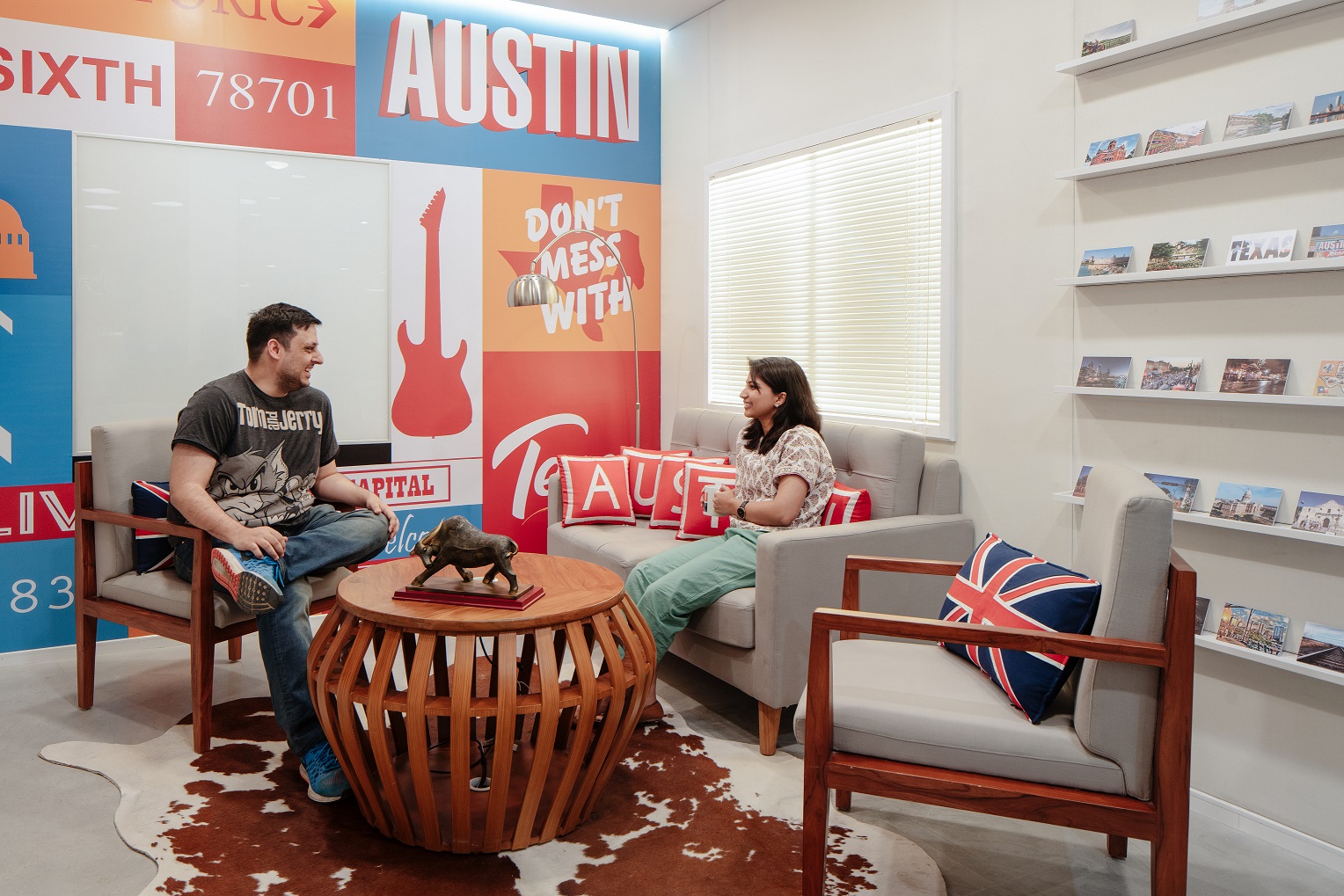
For instance, when we designed Airbnb’s Gurgaon workspace, we introduced micro-neighbourhoods inspired by its properties around the world. With work areas and conference rooms that transport people to Kashmir, Goa or Texas, employees can feel like digital nomads as they move from one workstation to another.
Another workspace that brings the element of wanderlust is Hilton’s Singapore office. With comfy lounges, biophilic work zones and a state-of-the-art café, operating out of this office feels like a gorgeous staycation.
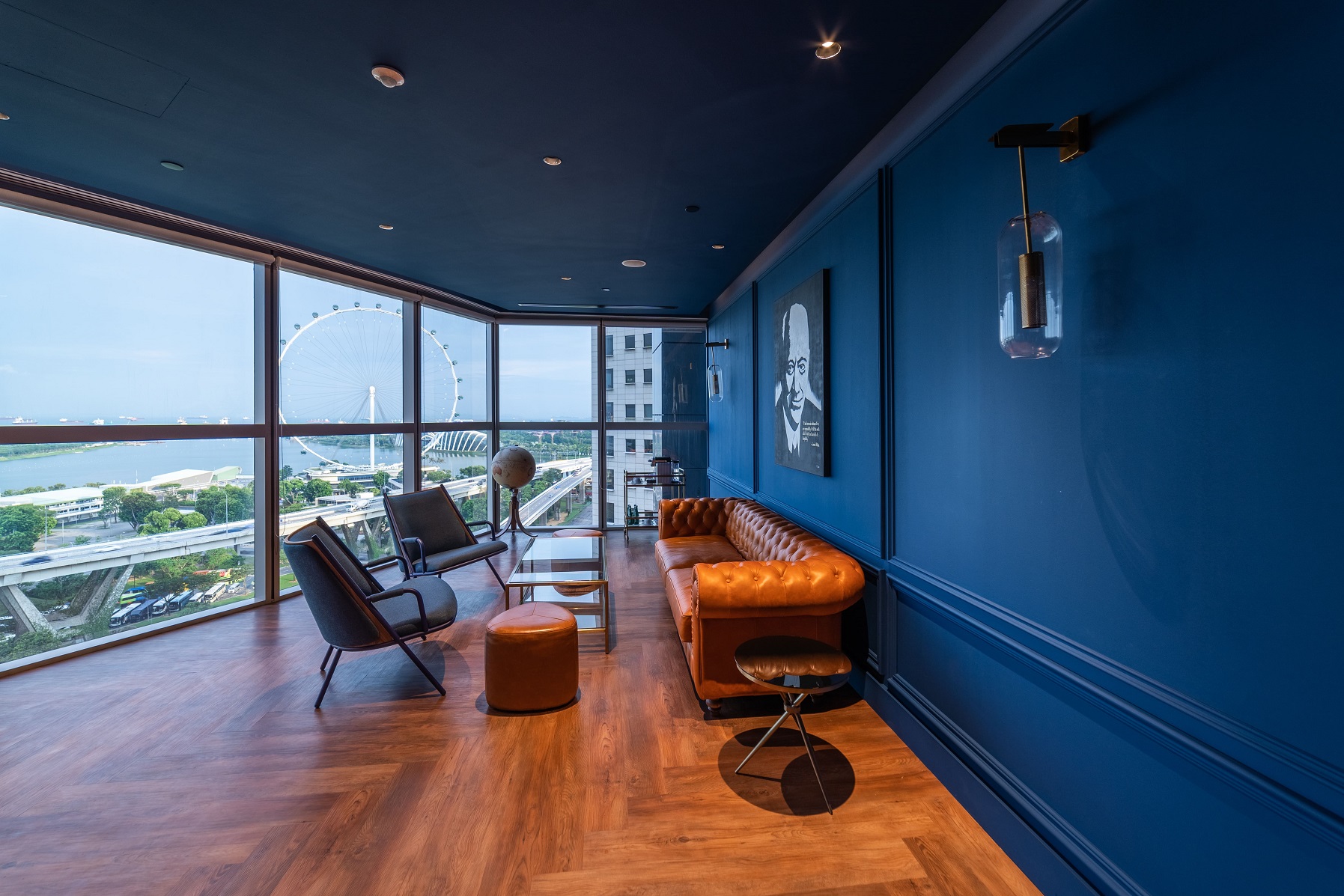
2. Technology
Offices that are positioning themselves to include digital nomads have to put razor-sharp focus on their technological foundation. After all, connectivity is imperative when employees collaborate and present their ideas from halfway around the world.
Most companies are adopting cloud-based platforms that enable people to access relevant data from anywhere in the world. Collaborative tools like interactive whiteboards and Microsoft’s Perceptive Pixel ensure that employees can log in for a meeting and be on the same page as their colleagues who are sitting together. Organisations that have employees working remotely from countries such as China, who restrict access to certain sites, need to equip these nomadic workers with secure VPN services so that they can access the same resources as those working from the company’s headquarters.
3. Policies
With technological advances, employees tend to answer emails, log in over the weekend or even work partially on their vacation days. This leads to a valid question — if no one tracks the extra time they spend on the job, why should their time-off be tracked? This prompted Netflix to approve a policy allowing employees to take unlimited leaves.
Netflix is not the only organisation to introduce policy changes to grant greater flexibility and autonomy to their employees. Upwork allows people to work remotely whenever they need — they even celebrate ‘Work Online Wednesdays’. US-based company Automattic has headquarters in San Francisco, but they have a fantastic work-from-anywhere policy for digital nomads. They have a travel budget that allows people to book flights and meet up with colleagues anywhere in the world, thereby ensuring that employees never feel cut off from one another.
Most companies today are open to letting people occasionally work from third spaces like cafes, parks or coworking offices. But rather than allowing these unspoken benefits, making them official with updated company policies lets firms protect their interests better. They can ensure data security and guarantee client confidentiality with ease.
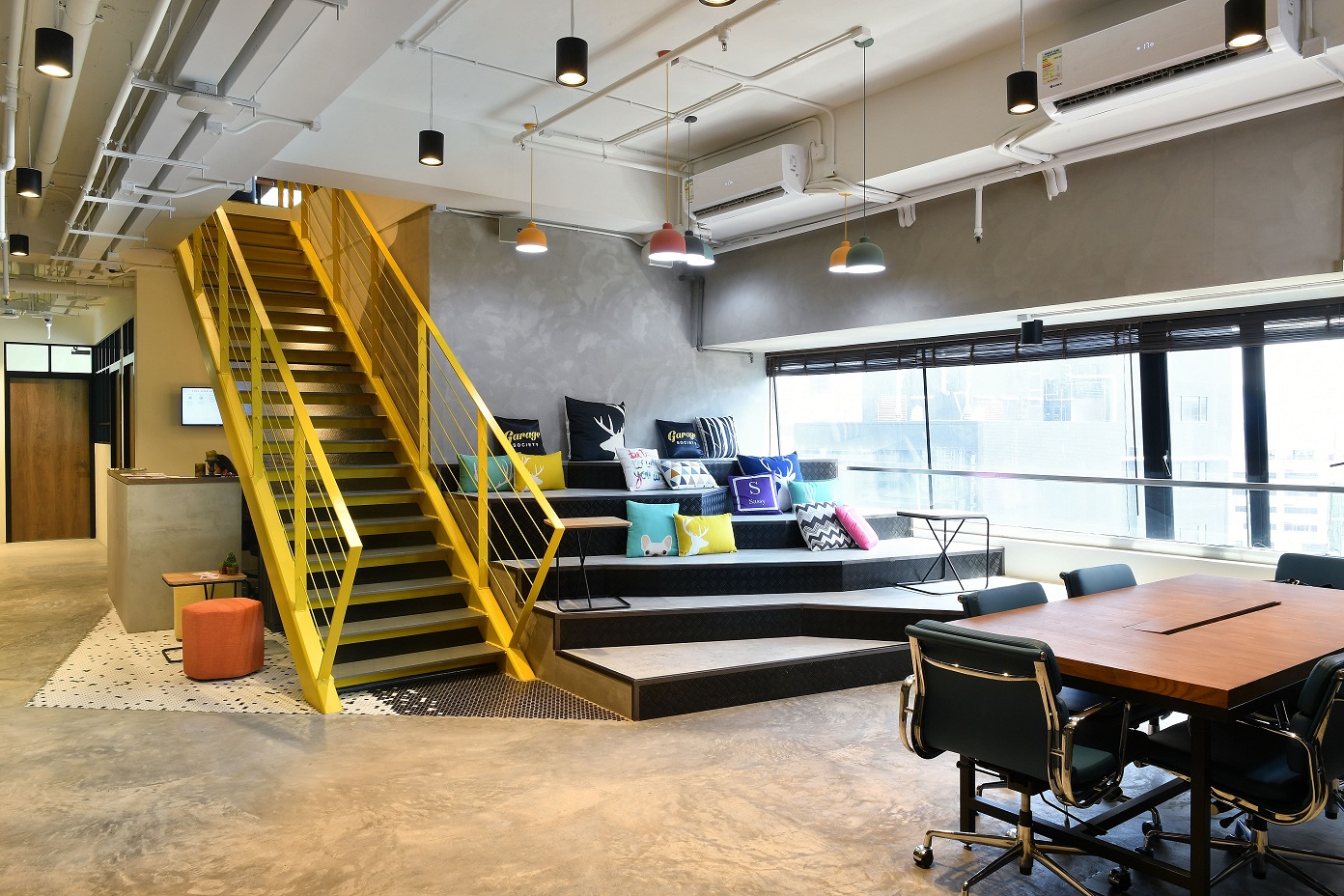
For instance, when Space Matrix designed a coworking space for Garage Society in Hong Kong, we intended the place to function as a social work hub — complete with comfy lounges, cafés, and work terraces. However, we also designed areas that offer maximum privacy to the investment firms and venture capitalists working out of Garage Society. These professionals operate in dedicated wings and acoustic rooms, where they can deal with sensitive information without fearing data leaks.
Given the pervasiveness of travel and wellness trends around the world, the digital nomad is here to stay. Companies that embrace this change have a crucial advantage over those who opt out of the journey. The world awaits — will you get on board?
With over 16 years of experience, Roger Clement strengthens our leadership team with his expertise in project management and building consultancy across Europe, the Middle East and North Africa. As the Managing Director of Singapore, his in-depth knowledge of design, construction and management redefines the client experience and drives Space Matrix forward as a leading workspace design provider.
Interested in developing spaces that are designed to promote a sense of wellness? Talk to us.

